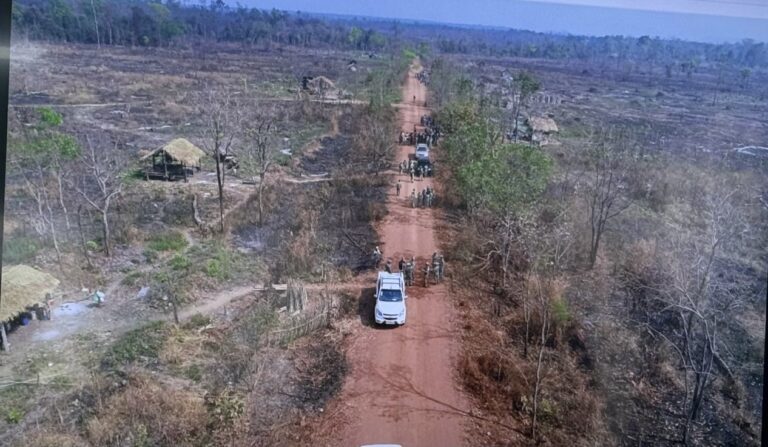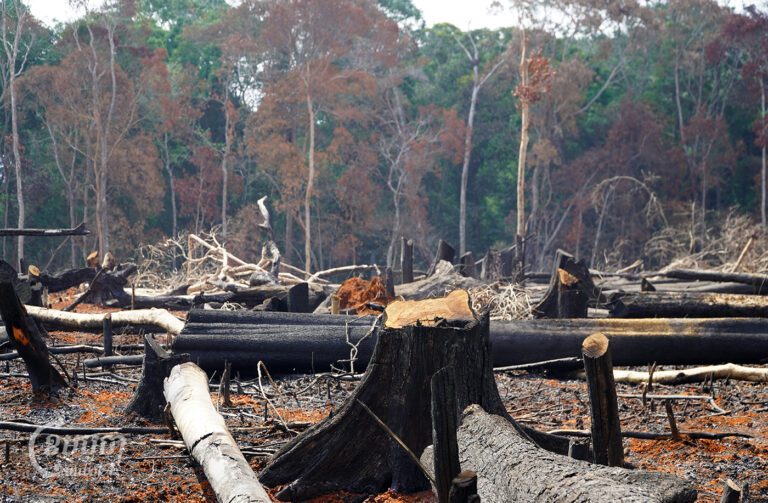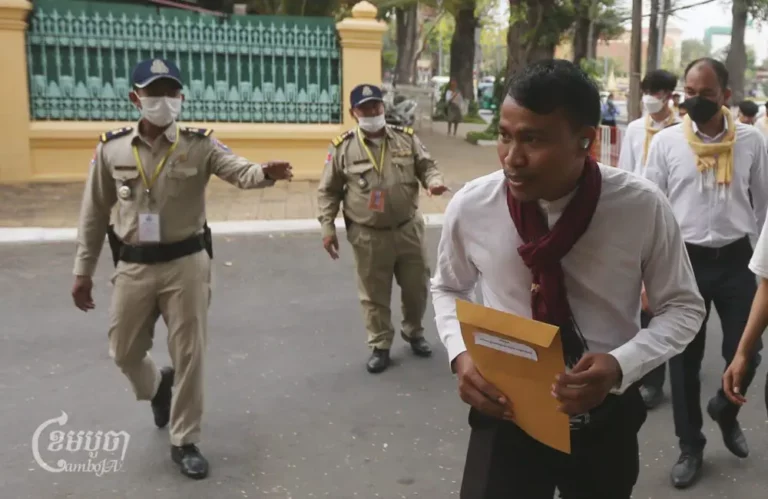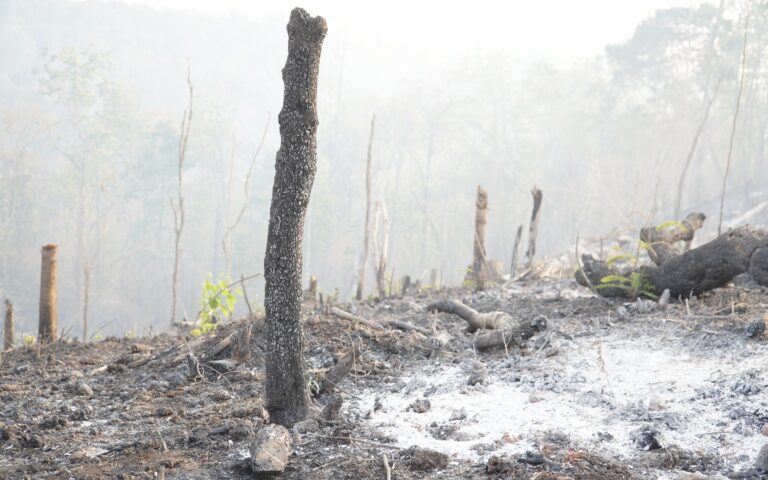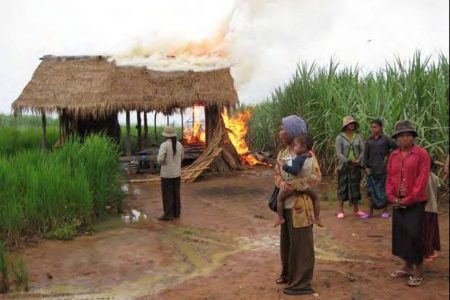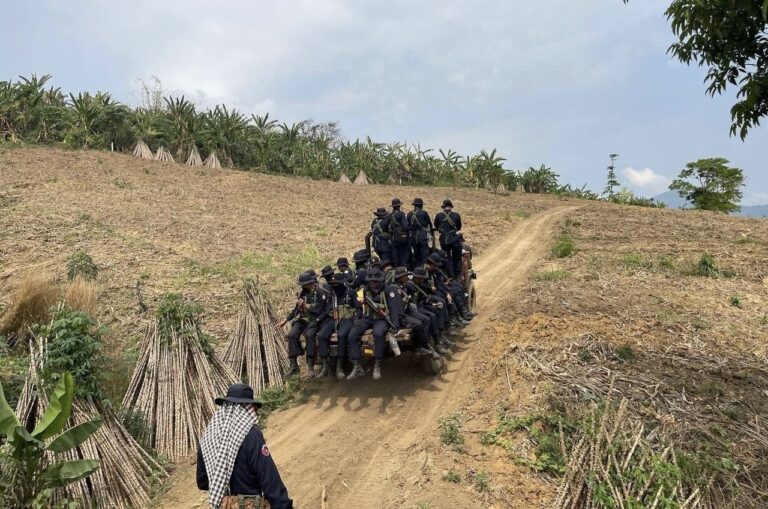Updated: According to Preah Vihear court deputy prosecutor, Sreng Vuthea confirmed that 25 people out of 36 people who were arrested by authorities over a land dispute in Kulen district, have been charged with “clearing and occupying forest land”.
The suspects are in pre-trial detention in Preah Vihear provincial prison, pending further investigation by the relevant authorities. They are charged under Article 97 of Forestry Law, which carries a jail term of five to 10 years.
The detention stems from a March 6 incident when provincial authorities including gendarmes, police and forestry administration officials mounted a mass crackdown, arresting residents in Srayong Tboung village. It occurred during a clash over a long-disputed land. The authorities said it belonged to a company called Seladamex, having received an economic land concession (ELC) from the state.
Lut Sela, whose two relatives were arrested during the clash, told CamboJA that people who ran away from armed police are hiding in the forest to escape arrest. Sela has lived on the land since 2013 after the company appeared to have shut down its operation.
She expressed her indignation towards the authorities for what she views as harsh enforcement against the innocent, those who have lived and cultivated crops on the land for many years. In the meantime, she urged the authorities to release her relatives and others, and grant them full justice over their own land.
“There is no fair solution to people from the authorities. They seem to neglect finding justice for us and instead accuse us of illegally occupying state land. If it’s state land, why don’t they grant it to people who don’t have enough land to sustain a livelihood?” Sela questioned. “At the same time they chase us as if we are cats and dogs.”
“I urge the authorities to release those detained. We are deemed as land grabbers on our own land. What is the law against poor people like us,” she said. “I hope the government will find a solution and carve out land for us so that we can live in peace.”
Villagers lamented that the armed forces also confiscated motorbikes and koyun (agriculture tractors) and destroyed homes and shelters.
The authorities confirmed the arrests with CamboJA but offered little information about the case regarding the court procedure against those detained.
Preah Vihear forestry administration chief Ith Phoumra did not respond to CamboJA’s request for comment sent via messaging app Telegram. Suos Sokdara, Preah Vihear provincial police chief, did not respond to requests for comment and multiple calls on Monday went unanswered.
A letter by the provincial administration lists provincial court prosecutor Ty Sovinthal and deputy prosecutor Thol Keom Heom as the commissioners in charge of law procedure against those detained. But, neither Sovinthal nor Keom Heom commented on the outcome of the detainees, only stating “not responsible and cannot give details for this case”, when asked. Numerous attempts to obtain updates via Telegram were not successful.
Kulen district governor Pen Cheoung, who was allegedly involved in the March 6 crackdown, did not respond to CamboJA’s repeated attempts to seek comment over the telephone on Monday.
Preah Vihear provincial court spokesperson Chum Kaniya declined to share information on the whereabouts of the suspects and the outcome of the case. When asked about the arrest of 36 residents in Saryong commune, Kaniya instead asked CamboJA News to list their names. However, the names were not known as neither the NGOs nor locals had any information on that.
“Please provide specific names of the defendants because we work on a lot of cases in Preah Vihear, only then we can provide detailed and transparent information,” Kaniya told CamboJA on Monday.
Deputy police chief Chhoy Borin could not be reached for comment, with calls being cut several times. He also did not respond to messages via Telegram.
Seladamex received an ELC of 9,000 hectares from the government in 2011 in Srayong and Phnom Tbeng II communes for the development of rubber plantations.
Residents have over the years clashed with the authorities, as well as faced crackdowns and threats of legal action by provincial authorities. The recent event marks the second crackdown after 2022 when authorities accused the residents of encroaching state land and committing criminal offenses, and causing public disorder in the area.
On March 7, 2024, the Preah Vihear provincial authority held a press conference on the implementation of legal measures against “state land grabbers”. They granted investment rights to Seladamex in Kulen district, Preah Vihear province, after the crackdown on the people on the land.
Deputy chief of Forestry Administration Cantonment Suon Sovann, who conducted the conference, said the March 6 incident was not the first time they “enforced the law” on Srayong community. Noting that it was the second time and on the same location, he said “they are still illegally occupying the state-granted company’s land”.
“Before we took action against the encroachers [on March 6], we gave them a warning and told them to leave the area, but they did not comply. Instead, they tried to harm the authorities,” Sovann said.
A letter issued by the Ministry of Agriculture Forestry and Fisheries on January 18, 2024 stated that 131 families in Srayong commune have illegally occupied a company’s land measuring 649.41 hectares.
A villager, who spoke to CamboJA under conditions of anonymity as she was afraid of reprisals from the authorities, said since the March 6 incident, armed police have continued to intimidate and apprehend locals. Those who were arrested have been taken to the province to face legal action.
Fearing persecution, some residents, including their children, have fled to the forest, where they are hiding. They are pleading with the provincial authorities to release their relatives and other residents, while requesting the government find a solution for them.
“Even children, who fled the authorities, are protesting and crying to the authorities to release their parents,” she said.
“They should consider releasing those detained. The authorities accused the people of illegally occupying state land but they are only living on state land which is controlled by the government. The people only cultivate that land to sustain themselves. I don’t understand what law they are using against the people [the poor],” she added.
NGO rights group Licadho operation director Am Sam Ath said the authorities should not have used weapons when they cracked down on the community because of a land dispute. The government should try to find a solution and consider carving out the land for them.
“It seems that 2024 is the first time the authorities cracked down using weapons during a land dispute. There shouldn’t be any use of weapons in land matters in this era, rather there should be a solution,” Sam Ath said.
“The [ELC-granted] company appears to have shut down its operation without further development, which is why people came to live and cultivate crops on that land again. Authorities should look at the people’s exact situation and find a solution instead of using violence,” he added.
Under the 2001 Land Law, land concessions created for industrial cultivation may be canceled if they remain inactive for more than 12 months without proper justification.
Note: This article was updated on March 15, 2024 with new information relating to additional arrests and the charging of villagers.



